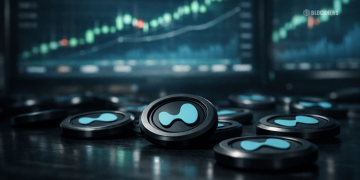- Decentralized science protocols are gaining attention, likened to the early days of DeFi in 2019.
- Emerging projects like BIO Protocol and Pump Science are exploring innovative healthcare and research solutions.
- DeSci aims to reduce institutional influence, enhance collaboration, and address systemic flaws in scientific research.
Decentralized science, or DeSci, is drawing comparisons to the early days of decentralized finance, with its potential being highlighted by industry executives. Andrew Kang, a co-founder at Mechanism Capital, described the sector as “raw and experimental” but brimming with opportunities. In an X post, Kang emphasized that DeSci protocols are poised for growth, much like how early DeFi projects evolved into significant players in the blockchain space.
Projects such as BIO Protocol, Pump Science, and GLP1 are pioneering efforts within DeSci. BIO Protocol offers a platform for co-owning “future medicines,” Pump Science connects tokens to longevity treatments, and GLP1 focuses on weight loss innovation. Kang disclosed that Mechanism Capital has already invested in BIO Protocol, signaling confidence in the sector’s potential.
DeSci leverages blockchain technologies like tokens, NFTs, and DAOs to revolutionize scientific collaboration and problem-solving. The goal is to democratize research, reduce reliance on traditional institutions, and enable community-driven scientific advancements.

Decentralized Science Tackles Systemic Challenges
The concept gained traction during the COVID-19 pandemic, as stakeholders sought more effective ways to address global health challenges. DeSci initiatives aim to rectify flaws in peer review systems, improve accessibility to genetic testing, and even explore treatments for conditions like baldness.
Another key focus is increasing data accessibility for researchers, healthcare providers, and patients while safeguarding sensitive information. By leveraging blockchain’s transparency and security features, DeSci could address the growing threat of cybersecurity breaches in healthcare.
Recent ransomware attacks on healthcare organizations have exposed millions of individuals’ private health data, underscoring the need for more secure systems. With DeSci still in its infancy, the sector has the potential to reshape the way science and medicine are approached in the digital age.














